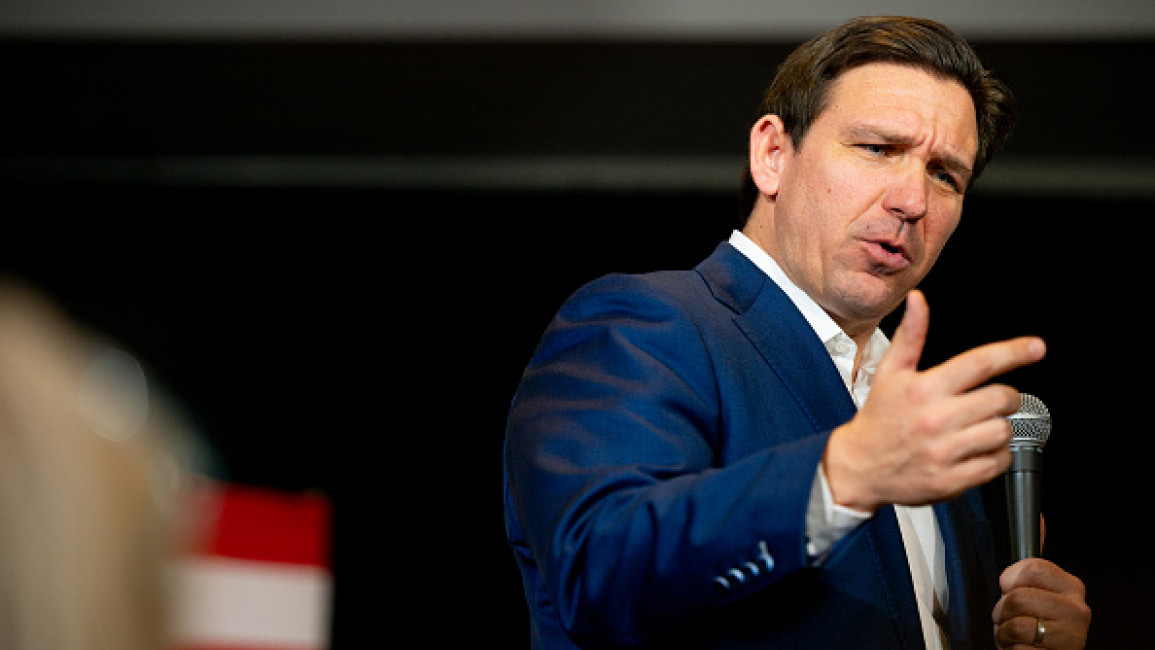Ron DeSantis suspends US election campaign, backs Donald Trump
Florida Governor Ron DeSantis, once the leading Republican rival to Donald Trump, ended his election campaign on Sunday and threw his support behind the former president.
DeSantis's withdrawal, after months of weakening support, leaves only low-polling Nikki Haley standing between Trump and nomination as the Republican Party's candidate for the US presidential election in November.
In a video message, DeSantis said that following his second place finish last week in the Iowa caucuses he could not ask "supporters to volunteer their time and donate their resources if we don't have a clear path to victory. Accordingly, I am today suspending my campaign."
The decision came less than two days before the New Hampshire primary, where polls showed him far behind front-runner Trump and former UN ambassador Haley.
"It's clear to me that a majority of Republican primary voters want to give Donald Trump another chance," DeSantis said, noting he has had differences with the former president, notably over the coronavirus pandemic.
"He has my endorsement because we can't go back to the old Republican guard of yesteryear or a repackaged form of warmed-over corporatism that Nikki Haley represents."
Trump stormed to victory in Iowa last Tuesday, with 51 percent of Republican voters choosing the twice-impeached former president over DeSantis, who gained only 21 percent, and Haley at 19 percent.
No candidate has ever lost the race after claiming the first two states, and Trump would almost certainly declare the Republican nomination over with a win in New Hampshire.
His campaign said in a statement Sunday that he was "honored" by DeSantis' endorsement, and called for Republicans to rally behind him, dismissing Haley as "the candidate of the globalists and Democrats."
"It's time to choose wisely," the statement said.
In her own statement, Haley warned that the United States is "not a country of coronations."
"So far, only one state has voted. Half of its votes went to Donald Trump, and half did not. Voters deserve a say in whether we go down the road of Trump and Biden again, or we go down a new conservative road," she said.
Many Republicans had pinned their hopes on DeSantis, who at just 45 was embraced by some as a rising star of the right.
But his candidacy, announced at the end of May, struggled to establish itself as a threat to 77-year-old Trump.
A former naval officer, DeSantis was elected in 2018 as governor in Florida after receiving Trump's valuable endorsement in the Republican primary.
Since then, he often distanced himself from Trump and gained notoriety for hard-right stances on education, immigration and LGBTQ issues.
His state management of the pandemic, pushing for a rapid reopening of the economy during then-president Trump's term and opposition to policies of President Joe Biden's administration, made him an instant hit.
He then sought a national platform, but appeared stiff and uneasy at candidate debates, media interviews and voter events.
"I'm glad that he's dropped out. I think that it was inevitable," Lynne Mason, 60, who runs a small business in Keene, New Hampshire, told AFP.
"We need a strong leader right now, with the state of the United States at this point."
At an event in Seabrook, New Hampshire, Haley said DeSantis "ran a great race, he's been a good governor, and we wish him well."
"Having said that, it's now one fella and one lady," she continued. "This comes down to 'what do you want?' Do you want more of the same or do you want something new?"
Having previously avoided direct invectives against Trump, Haley later leaned into the frontrunner, telling CNN she's "not thin-skinned" like him and that she views him and 81-year-old Biden as "equally bad."
"I don't think we need to have two 80-year-olds sitting in the White House ... we need to know they're at the top of their game."



